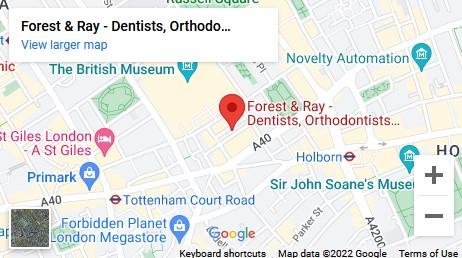Table of Contents

What is tooth sensitivity?
Tooth sensitivity occurs when the protective enamel layer wears away, exposing the underlying dentin. Dentin contains microscopic tubules that connect to the tooth's nerves. When stimuli like temperature changes or sugary foods come into contact with these tubules, they send signals to the nerves, causing discomfort or pain. Tooth sensitivity can also arise from gum recession, which exposes the tooth roots that lack enamel protection.
While tooth sensitivity is often temporary, it can persist and signal more severe dental problems such as cavities, gum disease, or even cracked teeth. Identifying the underlying cause is crucial to effective treatment.
How tooth sensitivity affects daily life
For individuals with sensitive teeth, daily activities can become a source of stress. Imagine hesitating before taking a sip of tea during a work meeting or avoiding cold drinks at a social event. These small yet significant moments highlight how tooth sensitivity can disrupt routines and lower confidence.
Beyond the physical discomfort, untreated sensitivity can impact mental well-being. It can make people feel self-conscious about their dental health, leading to anxiety in social settings. In severe cases, persistent pain can affect concentration at work or disrupt sleep patterns, further diminishing quality of life.
Common causes of tooth sensitivity

Tooth sensitivity can result from various factors, many of which are preventable. Understanding these causes is the first step toward managing the condition:
- Enamel erosion: Acidic foods and drinks like citrus fruits, tomatoes, and sodas can wear down enamel, exposing the dentin beneath.
- Gum recession: Gum tissue may recede due to aging, gum disease, or aggressive brushing, exposing sensitive tooth roots.
- Tooth grinding: Chronic grinding or clenching (bruxism) wears down enamel, increasing sensitivity.
- Teeth whitening products: Overuse of whitening agents can irritate the enamel and cause temporary sensitivity.
- Poor oral hygiene: A buildup of plaque and tartar can lead to gum inflammation and enamel erosion, worsening sensitivity.
- Cracked or chipped teeth: Damage to teeth can expose the dentin or even the inner pulp, causing sharp pain. We have an in depth article about chipped teeth.
- Recent dental procedures: Treatments like fillings, crowns, or professional cleanings may temporarily increase sensitivity. More about dental crowns in London here.
Treating tooth sensitivity

Treatment for tooth sensitivity depends on its underlying cause. Here are some effective options:
- Desensitizing toothpaste: Specialized toothpaste helps block nerve signals in exposed dentin. Regular use can significantly reduce sensitivity over time.
- Fluoride treatments: Professional fluoride gels or varnishes strengthen enamel and reduce sensitivity. Dentists may also recommend fluoride-based rinses for at-home use.
- Dental bonding or sealants: Bonding materials can cover exposed dentin, offering immediate relief from pain and preventing further damage.
- Gum grafts: In cases of severe gum recession, a gum graft procedure can cover exposed roots, reducing sensitivity and protecting the tooth structure.
- Mouthguards: For patients who grind their teeth, custom mouthguards can prevent enamel wear and alleviate sensitivity.
- Root canal therapy: In extreme cases where the tooth's nerve is affected, a root canal treatment in London may be necessary to remove damaged tissue and resolve pain.
Preventing tooth sensitivity
While treatment options are effective, prevention remains the best strategy for maintaining a sensitivity-free smile. Here are some practical tips:
- Brush twice a day using a soft-bristled toothbrush and fluoride toothpaste. Avoid abrasive brushing techniques to protect enamel.
- Floss daily to remove plaque and prevent gum inflammation.
- Limit consumption of acidic foods and drinks, and rinse your mouth with water afterward to neutralize acidity.
- Avoid teeth grinding by using a nightguard if necessary. Speak to your dentist about options.
- Visit your dentist regularly for professional cleanings and early detection of potential issues.
For residents in Camden, Holborn, and Bloomsbury, professional guidance is just a step away. 🦷 Forest & Ray 😊 dental practice offers expert care and personalized prevention plans to help you maintain optimal oral health.
Meet our team who can help you with tooth sensitivity
Why trust us?
🦷 Forest & Ray 😊's highly experienced dental team collectively holds over 108 years of expertise in dentistry, ensuring exceptional care and knowledge for our patients.

🦷 Forest & Ray 😊 is a private dentist in London (Holborn, Camden) practice offering a wide range of treatments (basically everything), same-day appointments 7 days a week and affordable prices. The key behind a beautiful smile is self confidence, and success. At Forest & Ray we ensure to help you to the best of our ability. If you place your trust in us, we will make sure you achieve your goals and maintain oral hygiene to the maximum of its capacity. Regardless of any age or condition, we promise painless treatments and a professional team.
When to seek professional help
If tooth sensitivity persists despite home care or worsens over time, it’s important to consult a dentist. Persistent sensitivity may indicate underlying issues like cavities, gum disease, or enamel damage that require professional intervention.
At 🦷 Forest & Ray 😊, our team of dental professionals in Central London provides comprehensive assessments and tailored treatments for tooth sensitivity. Whether it’s a simple fluoride application or a more advanced procedure like gum grafting, we are here to restore your comfort and confidence.
Conclusion
Tooth sensitivity can be a disruptive and frustrating condition, but it is manageable with the right care and attention. By understanding its causes and seeking timely treatment, you can enjoy a pain-free smile and improve your overall quality of life. Residents in Holborn, Bloomsbury, and Camden can rely on 🦷 Forest & Ray 😊 for expert guidance and effective solutions. Don’t let tooth sensitivity hold you back—take the first step toward better oral health today.






